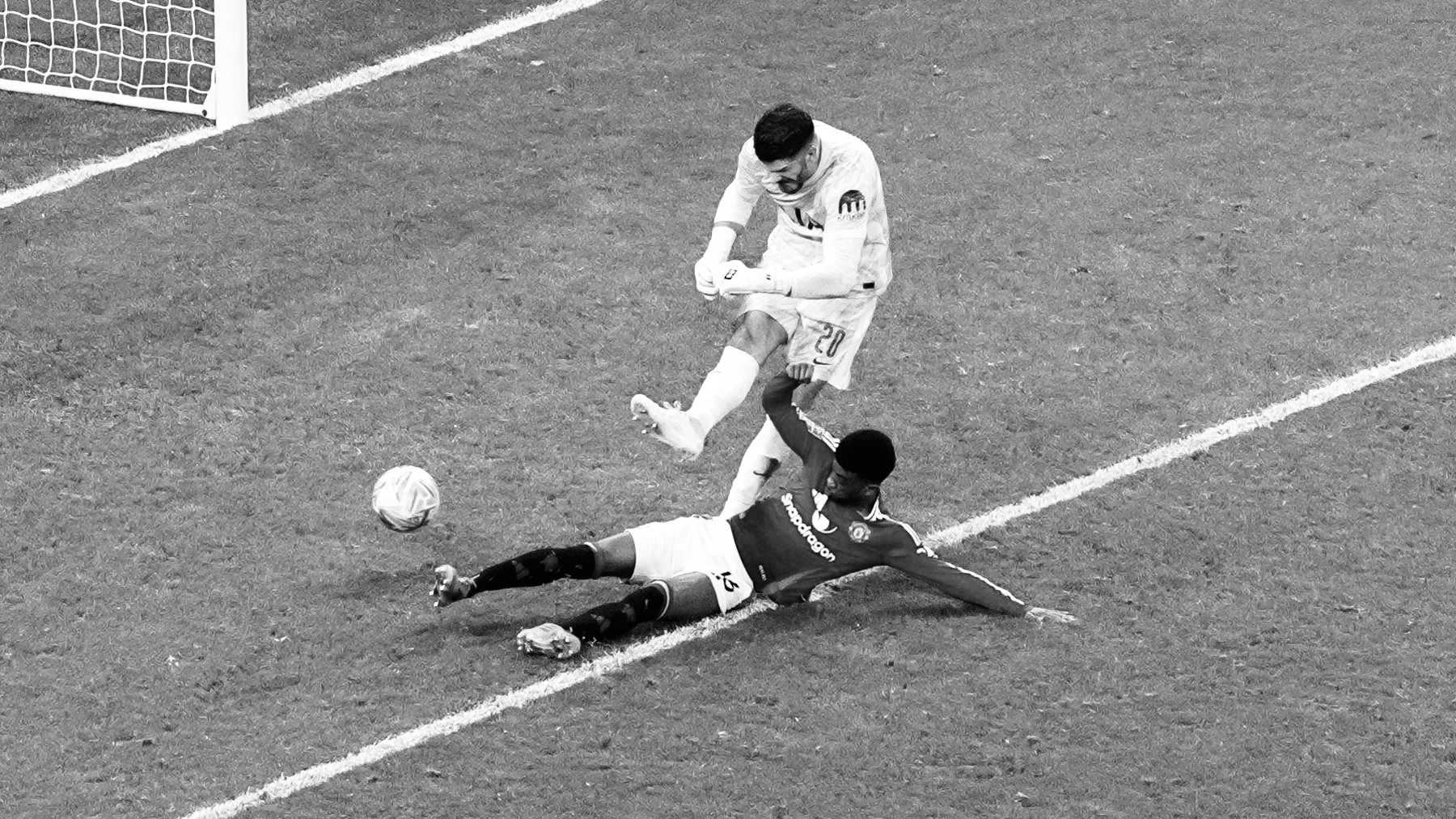Is English Football’s Pursuit of Perfection Killing the Spectacle?
Posted on December 20, 2024
English football has come a long way since the days of mud baths, life-threatening terraces, and defenders who treated flair players like they needed to be decapitated by a ‘reducer’. Today, the pitches are pristine, the stadiums are palatial, and the game is safer than ever. Progress has undeniably been made—but has something been lost along the way? In the relentless pursuit of results, could we be strangling the chaos and drama that make football the beautiful (and often ridiculous) game we all adore?
The Glorious Chaos We Love
Let’s face it: football is about more than just slick passing moves and world-class goals. It’s also about the howlers, the handbags, and the hopeless refereeing decisions. It’s the defender who plays a hospital pass straight to the centre forward, the goalkeeper who flaps at thin air, and, yes, the occasional 10-man brawl that gets everyone off their seats.
Of course, no one is suggesting we return to the days of players snapping each other’s legs in half or referees officiating games as if they’d only read the rulebook on the coach ride over. But the imperfections—the glorious unpredictability of it all—are what make football worth watching. Strip all that away in the name of efficiency, and you’re left with something altogether less fun in a silent stadium.
The Southgate Conundrum
Gareth Southgate was recently the poster boy for football’s modern pragmatism. Since taking over as England manager, he delivered stability, consistency, and no small measure of success. A World Cup semi-final in 2018, a Euros final in 2021, and 2024. Under his stewardship, England were transformed from perennial underachievers into a team that felt like they could actually win things.
But—there’s always a but, isn’t there?—there was lingering feeling that Southgate’s England were a bit, well, dull. Matches felt more like chess games than carnival rides. Individual flair was carefully managed, risks were avoided, and the focus was always on control. England were harder to beat than ever, but were they as fun to watch as they could have been? It’s the kind of football that gets results—but doesn’t always get pulses racing and perhaps it’s a good thing they got well beaten by Spain?
This isn’t just an England issue. Across the footballing world, the trend is the same: coaches obsessed with minimising errors, players drilled to within an inch of their lives, and systems that prioritise defensive solidity above all else. It’s football for the age of spreadsheets, and while it might be effective, it’s not always entertaining and is in danger of becoming yes so.
The Risk of Sterilisation
Of course, we all want progress (well, most of us, anyway). No one’s nostalgic for the days of unplayable pitches or terraces that felt like death traps. And protecting flair players like Cole Palmer or Bukayo Saka from thuggish defenders is absolutely the right thing to do in my opinion. But there’s a fine line between improving the game and sterilising it.
Picture a future where teams are selected by algorithms, tactics are dictated by AI, and the game is played with all the passion of discussing tax return over lunch with your accountant. Players would be judged solely on their data, flair would be an indulgence, and taking risks would be seen as a tactical blunder. The human side of football—the mistakes, the emotion, the sheer unpredictability—would be smoothed out in the name of efficiency. In short, it would be a bit shit, at least in my opinion, but I am 57, I guess.
A Game of Contradictions
The beauty of football lies in its contradictions. It’s a game of skill and luck, precision and chaos, brilliance and disaster. For every perfectly executed counter-attack, there’s a scuffed shot that somehow sneaks in. For every world-class save, there’s a defender who falls over his own feet. Football is great because it’s human—and humans, as we all know, are gloriously imperfect.
The Spurs v Manchester United game last night, was a chaotic joy to watch that could rival any pantomime. The hapless Fraser Forster played the lead role, set up beautifully by defenders who had seemingly forgotten how to play football. Yet the manager is being demonised for overseeing the carnage by the same supporters who chased pragmatists and serial winners, Jose Mourinho and Antonio Conte, out of town.
Progress Where Progress is Needed
So, let’s embrace progress where it’s needed. Let’s keep the pitches immaculate, the stadiums safe, and the referees more or less competent. But let’s also make sure we don’t sanitise the soul out of the game. Let’s keep the howlers, the arguments, and the occasional shoving match. Because when we look back on the greatest footballing moments, they’re rarely about perfection—they’re about drama, chaos, and a healthy dose of pantomime.
“Ooh there’s a brawl breaking out between the two benches…oh dear everyone has lost control…no one likes to see ugly scenes like this”.
Liar. We all love scenes like this and so do you, that’s why you became a commentator.

Got something to say?